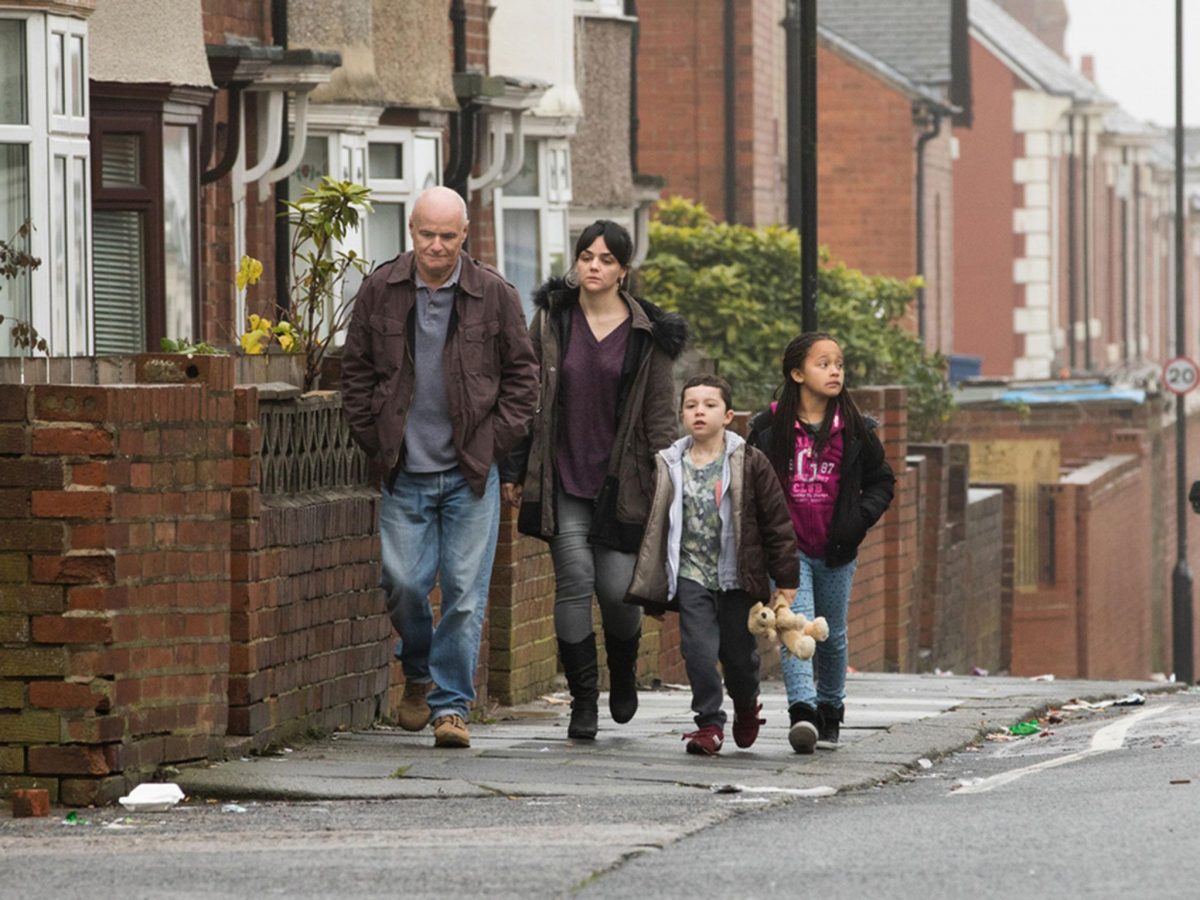There’s something strange about reviewing a Ken Loach film in 2016.
When I was born, Kes was already a perennial classic from my parents’ childhoods, and, almost a quarter century on, that film pushing fifty, Loach is still there directing socially pertinent work. We love to heap praise on Messrs. Scorsese, Spielberg & Scott for, if anything, ramping up production in their later years, but as evidenced by I, Daniel Blake, Loach may be the most pointedly relevant.
The film (which, based on its title namedrop probably shouldn’t have that comma) is unsettlingly modern, telling the path-crossing journey of Dan (Dave Johns), recently unemployed following a heart attack, and Katie (Hayley Squires), a single mother forced to move to the other side of the country lest she remain trapped in a hostel. Loach slowly builds up tension in depicting the simple, regrettably predictable struggle to get from day to day, replicating the constant stress those in these inescapable situations undergo in an affecting way stats simply can’t convey.
Dan, like us, is new to this world, gradually uncovering the bureaucracy of the Department of Work and Pensions and flat-faced injustice of the world it creates. His situation is a black joke, something the upbeat Geordie treats with the lack of seriousness you’d expect. It’s seeing the effect it has on others that really drives him to actually make a stand: Katie has become institutionalized after two years relying on the state; even her story is one of dependency, not willing laziness.
Empathy is I, Daniel Blake’s primary goal, and in that regard it succeeds wholeheartedly. Loach perfectly places this story in our world, making it not just an eye-opening journey, but a guilt-inducing one. I lived in Newcastle for a year, so it felt particularly pertinent to me, but this is a nationwide issue made painfully close. He definitely could have told a more direct narrative without becoming preachy — the same goes for the attempts at showing the culture gap between City Center Newcastle and its outlying areas — but the constraint is nevertheless impressive.
The accuracy Loach and screenwriter Paul Laverty’s research and focus brings is certainly defining (a pivotal scene in a food bank mostly starred volunteers), although it’s the two central performances that really give the film its humanity. Dave Johns and Hayley Squires play their characters as brave faces; only gradually letting their genuine fears seep out in moments of weakness. In a world where “benefits” is a dirty word, they cut through the rhetoric effortlessly.
And now for the obligatory Cannes paragraph. Yes, I, Daniel Blake won the Palme d’Or this year, which as always creates the illusion of some impenetrable, widely agreed-upon work of high art. Given it’s picked by a select few Hollywood names after being seen by an only marginally larger handful, I always find it’s best to take a “so what” attitude to the big winner from Festival de Pretentious; although this is one where the merit feels deserved. Its social commentary is purer than last year’s Dheepan (which painted Eurosceptic Britain as an immigrant’s goal) and it gets to the heart of individual human strife infinitely better than Terrence Malick’s pontificating Tree Of Life.
That’s just profile though. When we’re dealing with a film making a clear point in a targeted, personal way, the only context that matters is the world that’s created it. I, Daniel Blake is a rallying cry for social justice from one of Britain’s most enduringly important filmmakers.
